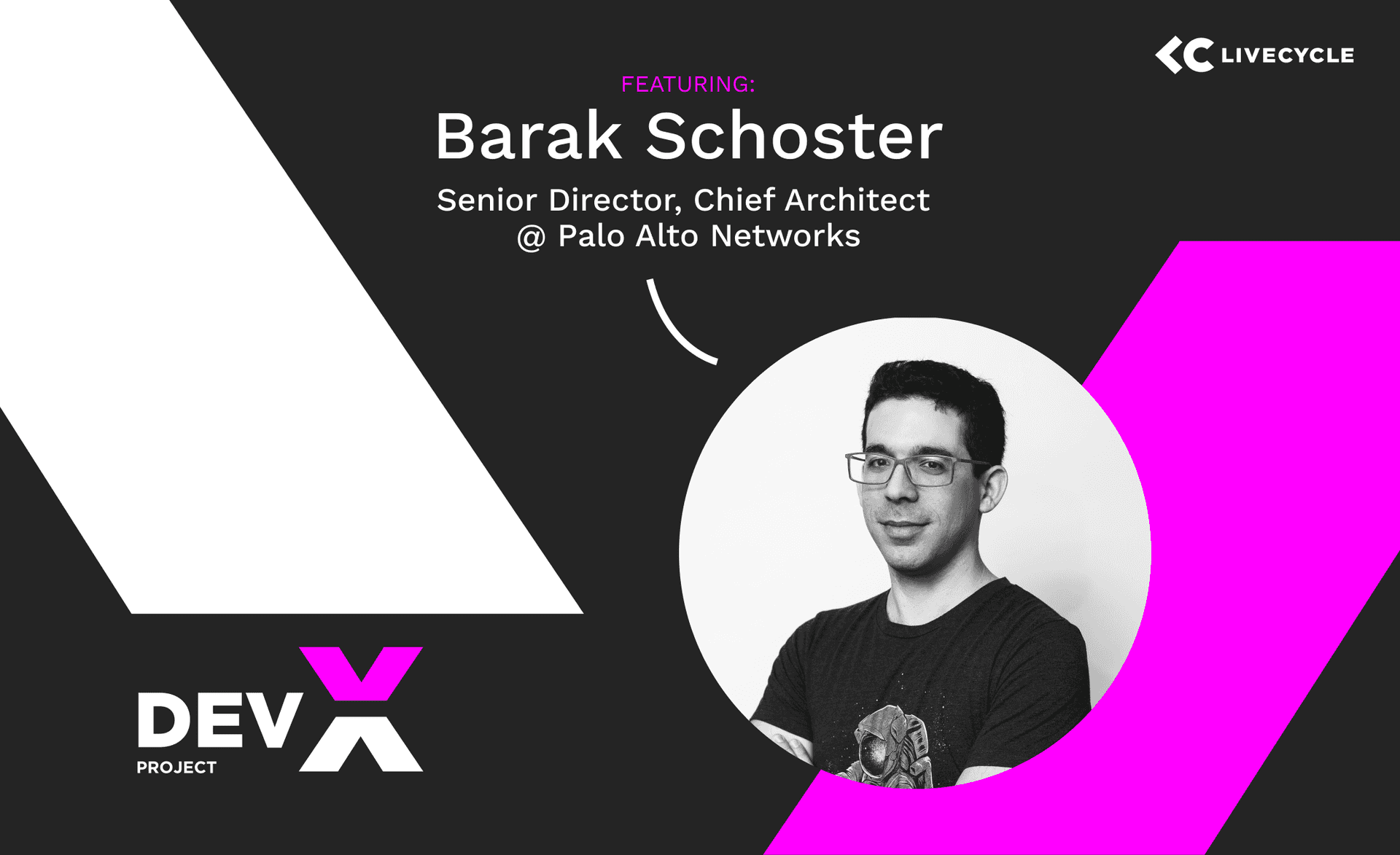The Dev-X Project is a series of features with industry leaders sharing their developer experience insights. In each “episode”, we ask an industry leader 10 interesting questions about DX, collect their responses and insights and share them with you.
Barak Schoster is Senior Director, Chief Architect at Palo Alto Networks which acquired his company Bridgecrew where he was co-founder and CTO. He has also held senior engineering positions in several other companies.
Barak has a lot of interest (and experience!) in big data architecture, devOps, devsecops, cybersecurity, machine learning algorithms and open-source technologies.
He is a respected entrepreneur and leader in the tech community and we appreciate his sharing some of his DX insights and perspectives with us.
You can follow Barak on Twitter and on LinkedIn.
When did you decide to become a developer?
[Barak]: I started coding at the age of 14, and became an addicted coder ever since. I like to make an impact, To have a fast feedback loop, and to continuously improve myself. Coding and composing architecture have all of those, and I always learn something new.
What are the key ingredients to a really good engineering culture?
[Barak]: Great question. For me, a great engineering culture is created when you do the following:
- Optimize for iteration speed
- Automate any repetitive, boring task
- Always improve and adapt
- Collaborate with team members, encourage feedback and have empathy when giving review
- Hire smart people who are fun to work with
Let’s say you’re building something from scratch. What does your ideal stack look like?
[Barak]: Serverless, Terraform, AWS, Jetbrains IDE, Github Actions, Python, React.
Tell us about an epic engineering fail you’ve experienced in your career. What did you learn from it?
[Barak]: Just like the famous meme, I once dropped a table at production at 7AM. luckily I had a backup I could use to recover.
How important is “Developer Experience”? Do you see this as a trend that will evolve into dedicated teams/functions for mainstream tech companies?
[Barak]: Developer experience is really important and it’s one of the things we put a lot of focus on in Bridgecrew. Having a fast feedback loop on the code is helping us to focus on what matters to our customers and to keep driving features fast. We have a dedicated team responsible for development infrastructure from environment provisioning to testing, and collaborating with different stakeholders.
Let’s take the mono-repo question once and for all - should you ‘go mono’?
[Barak]: Mono-repo for sure. That’s how we roll.
What will be the hottest dev trend/adopted technology in 2022?
[Barak]: I’m no prophet. But my hope is the heavy-lifting of maintaining a k8 platform will be much simpler in 2022 and beyond.
Some claim that front-end developers will become irrelevant in the future of no-code tools. Do you see this happening? If so, how soon?
[Barak]: I don’t think no-code platforms are there yet. And at the same time, talented developers are simply too important to the success of companies and products. We have many miles to cover before getting anywhere close to that destination, if ever.
Share some tips to help remote teams collaborate better.
[Barak]: I’ve found that over communicating helps to create alignment in remote teams. What this means practically is: try to keep communication simple, give examples, and sync early and often. Beyond that, find the tech stack & automation that will make communication a continuous process/methodology to your teams.
Do you want to share anything else? Please share anything you think would be of value to the broader developer community:
[Barak]: Some important principles to always keep in mind: Keep it simple. Enjoy. Learn. Teach.

